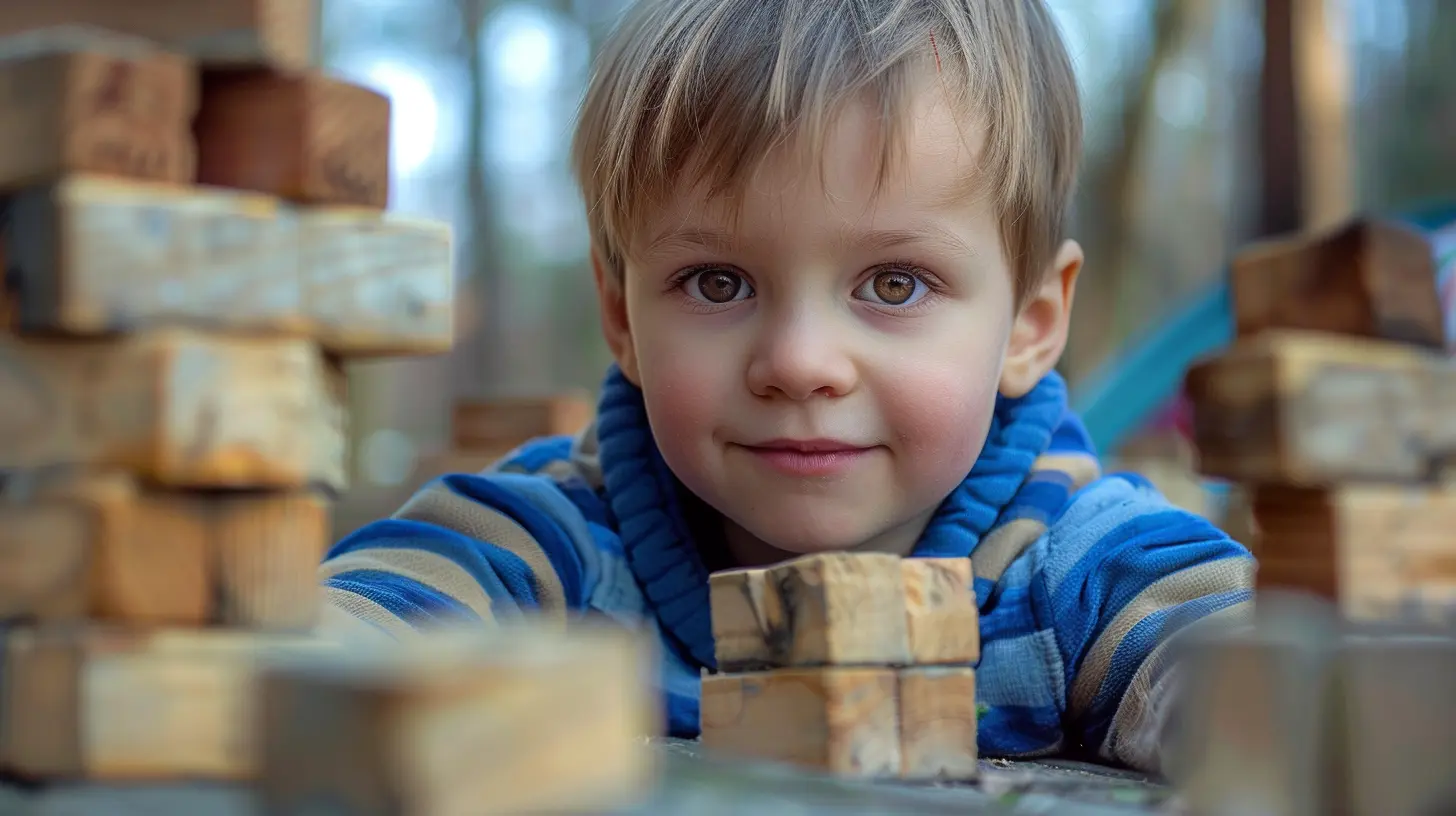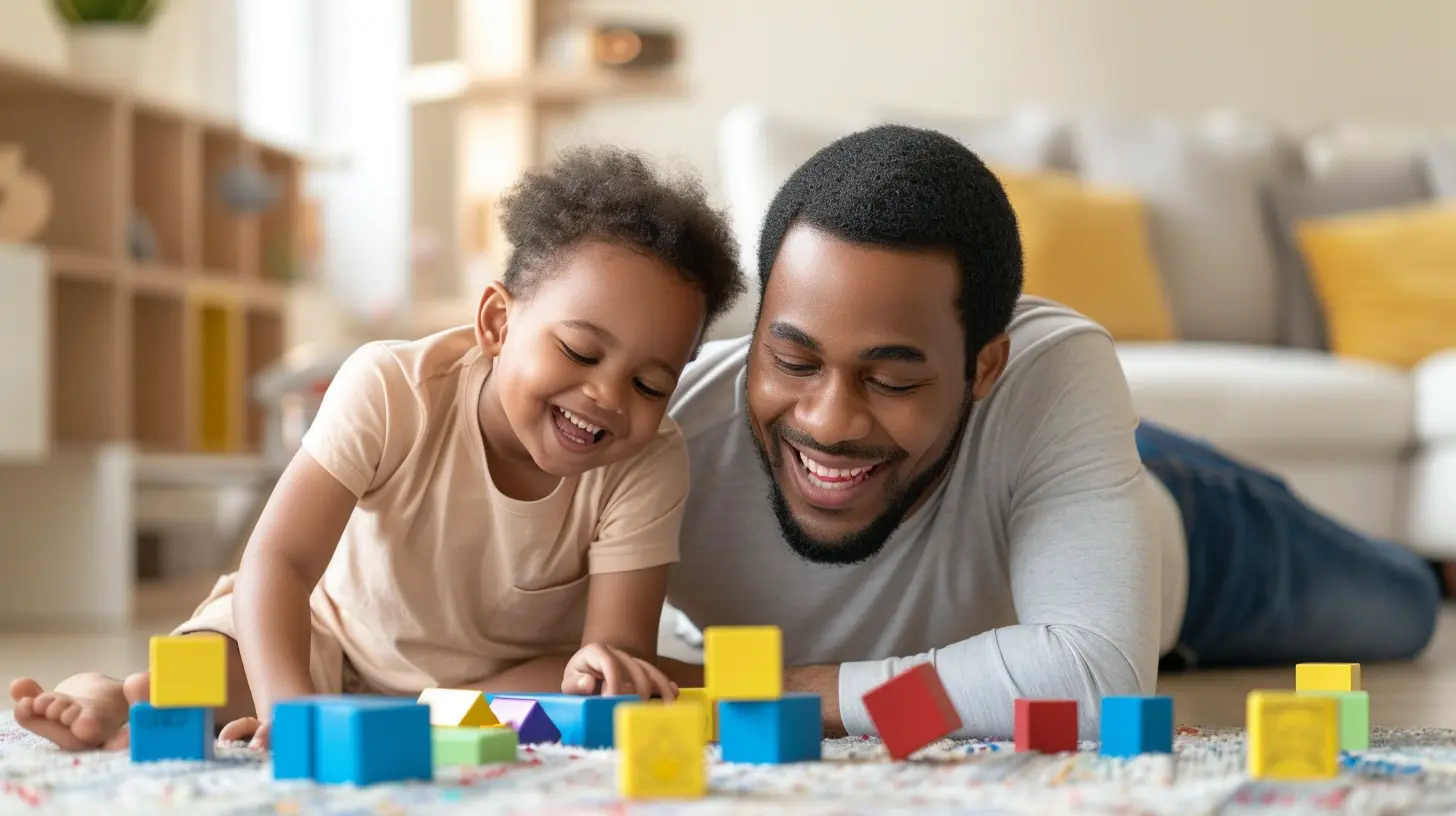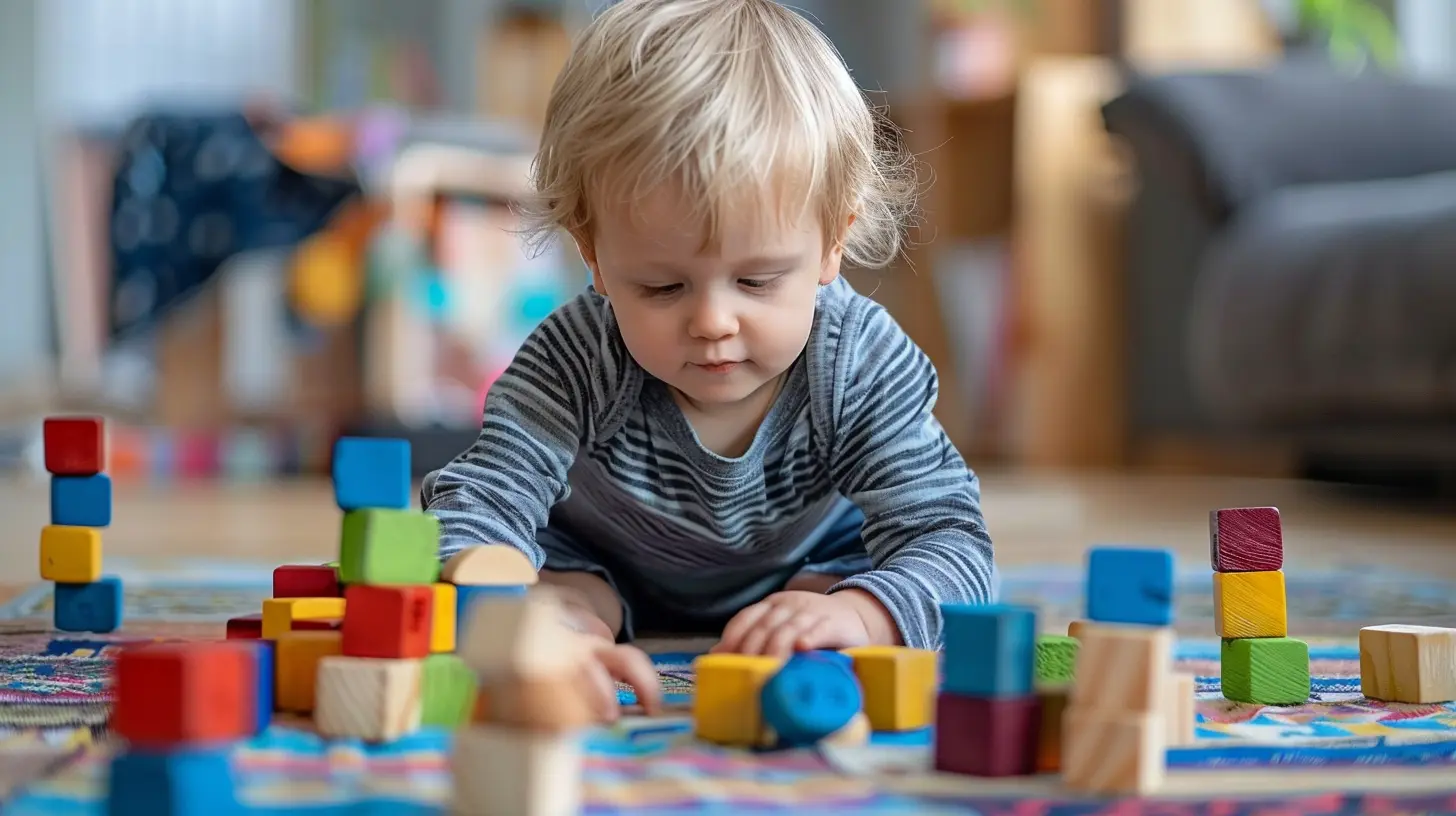How to Engage in Play That Strengthens Parent-Child Bonds
27 September 2025
Let’s be honest—life’s busy. Between work, errands, appointments, and the endless to-dos, it’s easy to forget that some of the most meaningful moments we share with our children happen when we simply play. And no, we’re not talking about setting them up with their toys while you scroll through your phone. We’re talking about real, intentional, silly, messy, joyful play—where you both lose track of time and just... connect.
In this article, we’re diving deep into how engaging in play can strengthen the parent-child bond like nothing else can. Whether you’ve got a toddler who thinks blocks are the coolest thing on Earth or a tween who randomly still wants to build forts, this is for you.
Why Play Is the Secret Sauce of Connection
You might think play is just for fun—and it is—but it’s also so much more. Play is how kids express emotions, process the world around them, and learn social skills. But when you join in on the fun, it becomes a powerful tool for building trust, communication, and closeness.Think about it: when you get down on the floor and become a dinosaur for 15 minutes, you’re telling your child, “Hey, you matter. I want to be where you are.” That kind of undivided attention? It’s golden.
The Neuroscience Behind the Bond
Okay, don’t worry—we're not turning this into a science class. But it’s worth mentioning that play releases oxytocin (the "love hormone") in both you and your child. That’s the same hormone that floods your system when you hug someone you love or share a good laugh.So yes, even a ten-minute play session helps wire your and your child’s brains for connection. Pretty wild, right?
Ditch the Screens, Embrace the Moments
Let’s face it—screens are part of life now. But when it comes to bonding through play, nothing replaces eye contact, shared laughter, and physical presence. Kids can tell when you’re really there with them.So put your phone away for a bit. Step into their world. Whether it's pretending the floor is lava or building a LEGO spaceship, be all in.
Different Ages, Different Stages: How to Play at Every Age
Every child is different, but most follow a pretty similar path when it comes to how they play based on their developmental stage. Here’s a rough guide to help you tailor your playtime to what’s age-appropriate and meaningful.1. Babies (0–12 Months)
How to Engage:- Peekaboo, mirror games, gentle tickles
- Sensory play with textures and colors
- Singing lullabies and nursery rhymes
Why It Matters:
At this stage, it’s all about building trust and safety. By responding to their cues and engaging in simple games, you show them the world is a safe and fun place—with you right by their side.
2. Toddlers (1–3 Years)
How to Engage:- Stacking blocks, pretend cooking, chasing games
- Reading picture books with exaggerated voices
- Play-dough creations and messy art
Why It Matters:
Toddlers are discovering cause and effect, and their favorite word might just be “mine!” Playing with them—on their terms—teaches cooperation and empathy while deepening your connection.
3. Preschoolers (3–5 Years)
How to Engage:- Dress-up and role-playing games
- Storytelling and puppet shows
- Simple board games or scavenger hunts
Why It Matters:
Their imagination is on fire at this stage. When you join their pretend world, you validate their creativity and boost their confidence. Bonus: they learn important social rules like taking turns and listening.
4. School-Age Kids (6–12 Years)
How to Engage:- Board games with some strategy (Uno, Guess Who, etc.)
- Outdoor sports and obstacle courses
- Crafting, science experiments, baking
Why It Matters:
This is when play becomes a shared language. Talking during activities gives you insights into their thoughts without the pressure of a sit-down “chat.” Plus, you’re reinforcing teamwork and problem-solving skills.
5. Teens (13+ Years)
How to Engage:- Video games (yes, really!)—play together, not just side by side
- Card games, board games, escape rooms
- Cooking challenges, DIY projects, bike rides
Why It Matters:
Teenagers crave independence but still need connection—even if they act like they don’t. Finding shared interests and playing together in low-pressure ways can keep those communication lines wide open.
How to Be a Play Partner, Not a Play Boss
We’ve all done it. You sit down to play, suddenly feel bored, and start “directing” your child—telling them how the dollhouse should be arranged or what rules the game should follow.But guess what? That kind of takes the magic out of it.
Let your child lead. That's when the magic happens.
Letting them make the rules—even if the “pizza” they made with Play-Doh is topped with crayons and glitter—is how they build creativity and confidence. Your role is to be present, engaged, and following their lead.
Making Time for Connection (Even When You’re Swamped)
We get it—there are never enough hours in the day. But play doesn’t need to be hours-long or perfectly planned. In fact, sometimes the most magical moments happen in spontaneous, five-minute bursts.Here are a few ways to sneak in connection:
- Dance parties while cooking dinner
- Singing songs in the car
- Silly faces during tooth-brushing
- Card games before bed
It’s not about the length of time; it’s about the quality of attention. Ten focused minutes can be more powerful than an hour of distracted half-involvement.
Creative Play Ideas for Strengthening Bonds
Need a little inspiration? Here are some fun, tried-and-true play ideas that are more about connection than perfection:1. The “Yes, And” Game
Take a cue from improv comedy. One person says something silly (“Let’s fly to the moon in a banana!”) and the other says “Yes, and…” continuing the story. It’s goofy, fun, and sparks imagination.2. Story Swap
Start a story, then take turns adding a sentence. It could end up about a superhero dog who likes waffles. The sillier, the better.3. Shadow Puppet Show
Lights off, flashlight on. Grab some hand puppets—or just use your hands—and create a story on the wall. Not only does it spark creativity, but it’s also the kind of low-tech fun kids remember for years.4. Build a Family Fort
Get blankets, pillows, and snacks. Make a cozy fort in the living room and hang out inside. Read books, tell jokes, or just lay and relax together.5. Obstacle Course Challenge
Use furniture, tape, and toys to create a home obstacle course. Compete, cheer each other on, and celebrate every “mission” completed.Let’s Talk About Laughter
Laughter is the universal language of love. Shared laughter during play builds emotional safety and vulnerability. It says, “We’re in this together.” Plus, let’s be real: when kids see you belly-laugh at their antics, they feel like a million bucks.Never underestimate a good knock-knock joke session.
When You Don’t Feel Like Playing
We’re not perfect. There will be days when you’re too tired, too stressed, or simply not in the mood. That’s okay. Show your child honesty and self-care by saying, “I can’t play right now, but I really want to later.” Then follow through.Your presence doesn’t always have to be playful to be meaningful—but making time consistently helps grow that bond over time.
The Long-Term Payoff of Play
The beauty of playing with your child is that the benefits linger way beyond the moment.- Kids who feel close to their parents are more resilient
- They communicate better
- They’re more cooperative and empathetic
- And, believe it or not, they grow into teens who actually want to hang out with you
So while it might feel silly to put on a cape and pretend to be a superhero for the fifth time this week, know that it’s building something bigger. A bond that can weather tantrums, teenage eye-rolls, and everything in between.
Final Thoughts: Play Is Love in Action
At the end of the day, play is more than just passing time. It’s a reflection of love, attention, and trust. When you set down your phone, step into your child’s world, and let go of your “grown-up” agenda, you’re saying: “You matter to me. I want to know you.”So whether it’s five minutes or fifty, mess or no mess, make play part of your daily rhythm. Because those giggles? Those moments of connection? They’re what your child will remember the most.
all images in this post were generated using AI tools
Category:
Attachment ParentingAuthor:

Max Shaffer
Discussion
rate this article
1 comments
Astra Love
Engaging in play not only creates joyful moments but also deepens connections. I’ve found that it's in these playful interactions where trust and understanding truly flourish.
September 29, 2025 at 4:44 AM

Max Shaffer
Absolutely! Play is a powerful tool that fosters joy, trust, and deeper connections between parents and children. Embracing playful interactions can significantly enhance those vital bonds.


